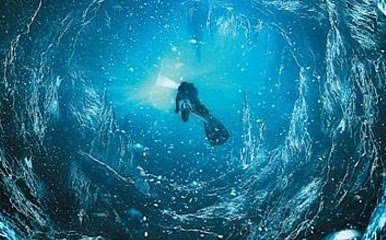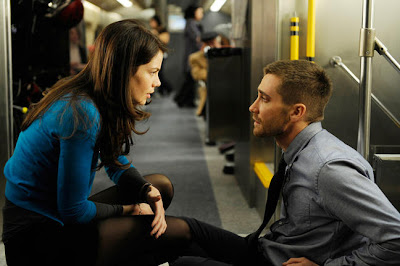
John Adams was a founding father and an instrumental voice during the American Revolution. He fought for separation from Britain, signed the Declaration of Independence, was a foreign dignitary, and served as the first Vice President and second President of the United States. Yet, he is an unsung hero, often remembered for his shortcomings if remembered at all while men like George Washington, Benjamin Franklin, and Thomas Jefferson are heaped with praise. John Adams is a seven part HBO miniseries covering 50 years in the life of the second president, from the revolutionary years up until his death. Based on the biographical novel by David McCullough, John Adams is a beautifully mounted biopic with great scope. Directed by Oscar winning director Tom Hooper, he wonderfully captures Adams' personal and private life through the use of a large camera shot (I am not versed in camera types) which can capture an entire room from top to bottom as well as large exterior vistas (he used the same technique in The King's Speech). The film is wonderfully cast with Paul Giammatti delivering a phenomenal performance as John Adams, capturing the brilliance as well as the petulance of the president. Laura Linney is his equal playing Abigail Adams, John's beloved wife and counsellor. The supporting cast is spectacular as well, most notably being Stephan Dillane who so wonderfully portrays Thomas Jefferson as a brilliant, reserved, and sad character. Also standing out are Tom Wilkinson as the crude and ingenious Benjamin Franklin, David Morse as an honorable George Washington, Danny Huston as Sam Adams, the firebrand cousin of John. Rufus Sewell as the devious Alexander Hamilton, and John Dossett as the loyal confidant to John Adams, Benjamin Rush. John Adams is history captured beautifully, that would have been worthy of the large screen. The series gets better as it progresses up until the incredibly moving finale and is the kind of work that is impossible to remove your gaze from. It is an example of filmmaking in the highest degree. Here is a synopsis of each of the episodes:
Part I: Join or Die
Struggling attorney John Adams (Paul Giammati), with the love and support of his wife Abigail (Laura Linney) takes the case of the British officers accused of firing upon the colonists during the Boston Massacre, much to the chagrin of the rebellious natives, especially his cousin Sam (Danny Huston) who is a volatile anti-British advocate. After much persuasion, John finally takes the side of the colonists and is elected to the First Continental Congress.
Part II: Independence
As the Massachusetts colonists take up arms against the British at the Battles of Lexington and Concord and Bunker Hill, Abigail Adams shields her family from war and disease while faces opposition in his attempts to have the Continental Congress take action against the Crown. While in Philadelphia he sees George Washington (David Morse) appointed leader of the militia while forming alliances with Benjamin Franklin (Tom Wilkinson) and Thomas Jefferson (Stephen Dillane), as they move closer to war and independence.
Part III: Don't Tread on Me
As the war with the British rages on, John and his his son journey to Paris in an attempt to secure funds and a stronger naval fleet. Much to Abigail's dismay, the two depart on an arduous voyage across the Atlantic where they encounter enemy fire. In Paris, John finds himself unaccustomed to French manners and finds himself displeasing the French government and diplomat Benjamin Franklin. After being removed as minister, he travels onward to the Netherlands where he again finds no help in securing funds becoming deathly ill, at around the same time that General Cornwallis surrendered to George Washington.
Part IV: Reunited
After receiving the triumphant news of British surrender, John travels from Holland back to Paris where he is finally reunited with his loving wife. While starting a rivalry with Thomas Jefferson who is replacing Benjamin Franklin as foreign minister, John is appointed ambassador to England and becomes the first American to address King George III. Unhappy as outcasts in London, John and Abigail return home to enjoy their retirement until he is encouraged to take place in the inaugural election, where he comes in second to George Washington and becomes the first Vice President of the United States of America.
Part V: Unite or Die
John finds himself the office of the Vice President to be utterly useless, as he is excluded from cabinet meetings and Senate debates where he is openly ridiculed by its members. He also finds his relationship with Thomas Jefferson strained over their differing opinions on what America's role should be in the war between England and France. When George Washington declines to run for reelection following his second term, Adams as well as Jefferson, face opposition from Alexander Hamilton who strongly backs a third candidate, Thomas Pinckney. When John is finally elected the second President of the United States, he finds depression has washed over him as well as a ransacked presidential mansion.
Part VI: Unnecessary War
Alexander Hamilton's men in John's cabinet leftover from George Washington's administration are pushing for war with France in that nation's conflict with Britain, although John fervently tries to remain neutral. His relationship with Vice President Jefferson is further damaged when he takes defensive measures against the French such as signing the Alien and Sedition Acts. Following the death of George Washington, John and Abigail move to the newly formed municipality of Washington into the newly built White House. A family crisis occurs when John disowns his alcoholic son Charles for leaving his family penniless and matters become graver when he dies and John is unable to forgive him. A peace is soon negotiated with France, much to John's delight, but he loses reelection to Thomas Jefferson, thanks in part to a smear campaign by Alexander Hamilton in response to having his army disbanded. Disappointed yet relieved and proud for keeping the country out of war, John returns to his Peacefield home in Massachusetts.
Part VII: Peacefield
John is unsatisfied is retirement, bitter and resentful at his career which is made worse by the revelation that Thomas Jefferson smeared him behind his back when he served as his Vice President. Writing his memoirs to set the record straight, he is beset by personal tragedy, first when his daughter Nabby dies then when his dear Abigail passes. John extends an olive branch to his old friend Jefferson and the two exchange letters for the rest of the their lives until they both expire on July 4th, 1826, the 50 year anniversary of the birth of America.











































